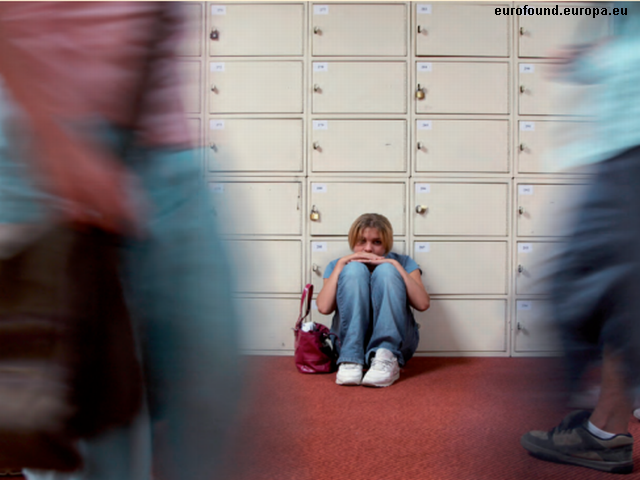Solutions for the inclusion of young people not in employment, education or training
In March, the Romanian capital city Bucharest hosted several events that brought into the spotlight the situation of NEET youth.

Luana Pleşea, 05.04.2017, 13:22
In March, the
Romanian capital city Bucharest hosted several events that brought into the
spotlight the situation of NEET youth, that is young people aged between 15 and
24, who are not in education, employment or training. In other words, they are
not registered in any system. The participants in these events discussed
possible solutions for the integration of these young people who account for a
worrying large percentage of the population of Romania.
While in the
European Union the NEET rate is dropping, now standing at an average of 12%, in
Romania this figure is at around 18%, according to statistics from 2011. This
accounts for between 400,000 and 500,000 young people, but there may be more,
because many are no longer registered with any institution. This is the context
in which a think-tank called Social DOers held a national conference where it
launched the European Coalition for the Rights of Young NEETs. The platform is
financed under the Erasmus+ programme and was launched in January in Brussels.
The idea underlying the platform is that this is not only a national problem,
but one that exists in other EU member countries as well. Veronica Stefan, the
head of the Social DOers association explains:
This pilot
initiative is looking at the specific situation in six countries. Romania is
one of them, but we also looked at countries like the UK and Austria, which
have very low rates for this category of young people. We also looked at
countries like Portugal, Italy and Belgium. We reached the conclusion that we
need to join forces. On the one hand, we need a platform allowing the NGOs that
provide services to these young people to work with social partners, like trade
unions and employers associations, as well as political partners, namely the
political decision-makers. The platform targets these three categories: NGOs,
trade union and employer structures and European MPs, because they are the
direct link between the decisions made at EU level and the citizens of all
member states.
Victor Negrescu,
of the European Socialists and Democrats, is one of the MEPs concerned with the
problems of young people, particularly those in the NEET category. He says that
while there are many EU programmes designed to support the young, there are
also shortcomings:
A lot of these
programmes look at youth problems as a global, general issue. There aren’t
enough customised approaches that specifically target the NEET youth and, more
importantly, that help these young people, 21 million in the whole of the EU,
to experience the benefits of these European programmes. During the talks in
Bucharest, my stand was that we should tailor these programmes to the actual
needs of these young people, and that we should start by identifying these
needs at a local level, which has not been done properly so far.
That inactive young
people account for nearly half a million of the country’s population may not
sound that bad, but things are a great deal worse in reality. As they grow
older, these young people remain inactive and their number in their respective
category grows. If young people under the age of 25 account for a mere 18%,
their percentage increases to 25 by the time they reach 30 and stays at a
little over 20 by the time they reach 35. This is how a generation of inactive
young people is created, young people who don’t produce anything. Veronica
Stefan says this is both an economic problem and an economic cost:
A European agency
estimated that in 2011 Romania spent, or, better said, lost, 1.54% of its GDP,
accounting for around two billion euros. This means that nearly half a million
young people in this situation received the minimum amount of social benefits, but
they contributed nothing. So the economic cost they generate amounts to
approximately two billion euros.
Considering that both Romania and Europe in
general are faced with the problem of population ageing, and therefore need as
many people in employment as possible, it is important to find a solution very
quickly. That is exactly what the European Coalition for the Rights of
Young NEETs platform aims to do.
Veronica Stefan tells us more:
What we’re hoping to do by bringing
together all the players involved is to get the NGOs with easiest access and
friendliest services for young people to act as mediators between institutions
and these young people who can no longer extricate themselves from the
situation or who may not necessarily want to do it too quickly. We also aim to
work with institutions to help them create more flexible policies. So far, we
have focused mainly on tapping European funds through projects rather than
programmes. Projects last for a few years and it’s hard to keep track of these people
once the projects are over. What’s important is to have continuous programmes,
with a much more friendly approach and focusing specifically on these young
people.
In conclusion, what needs to be done is to
identify the young people who are not in employment, education or training,
monitor their situation and provide them with specific solutions. National
programmes are also needed, backed by public policies.






























